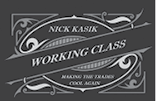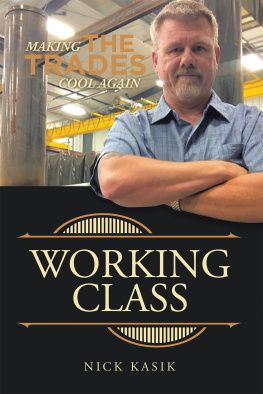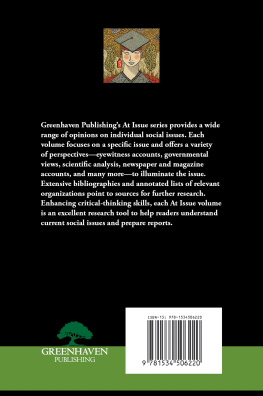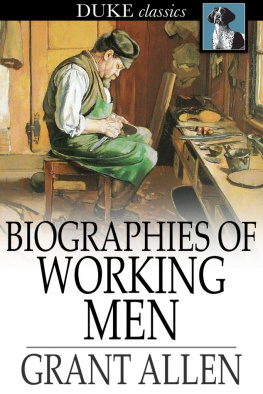
WORKING CLASS
MAKING THE TRADES COOL AGAIN
NICK KASIK

WORKING CLASS
MAKING THE TRADES COOL AGAIN
Copyright 2022 Nick Kasik.
All rights reserved. No part of this book may be used or reproduced by any means, graphic, electronic, or mechanical, including photocopying, recording, taping or by any information storage retrieval system without the written permission of the author except in the case of brief quotations embodied in critical articles and reviews.
iUniverse
1663 Liberty Drive
Bloomington, IN 47403
www.iuniverse.com
844-349-9409
Because of the dynamic nature of the Internet, any web addresses or links contained in this book may have changed since publication and may no longer be valid. The views expressed in this work are solely those of the author and do not necessarily reflect the views of the publisher, and the publisher hereby disclaims any responsibility for them.
Any people depicted in stock imagery provided by Getty Images are models, and such images are being used for illustrative purposes only.
Certain stock imagery Getty Images.
ISBN: 978-1-6632-4123-8 (sc)
ISBN: 978-1-6632-4133-7 (hc)
ISBN: 978-1-6632-4124-5 (e)
iUniverse rev. date: 06/23/2022
CONTENTS
T he TV show Working Class was developed to bring attention to the trades, and to promote vocational careers. We celebrate the technological advancements and skills that are required to work in the trades, illustrating just how out of touch with the trades society has become.
Over the course of the show, we have highlighted many different trades, as well as the stories of the interesting people who work in these trades each day. We illustrate how technologically advanced the trades people are and invite you on a journey to understand how we got to where we are.
In this book we step back in time to the beginning and examine when this young country was born out of hard work, grit, and determination. We survived a revolution, a civil war, a great depression, the dust bowl, prohibition, two world wars and a host of other hardships. Through all of this, the strength of this great country was built on the backs of the working class, who got up early, got their hands dirty, and did the work of this great nation. These are the people who shower at the end of the day, after their work is done, rather than in the morning before they go to work. But somewhere along the way, we seem to have lost sight of this, and the pendulum has swung away from our proud roots.
If you look at the general work force today, and certainly the younger work force, you will find at least two generations of people who simply were not taught what it takes to build a nation, an economy, and a solid cultural foundation. Its not their fault. No one told them. They were taught not to get dirty or work hard. Society taught them they could do as little as possible and make a lot of money as quickly as possible. And then, if something doesnt go that way, it is the fault of society.
So now we have a workforce that is broken and confused. We have a generation of managers with no one to manage, and a younger generation of people who were lied to. They were sold the promise of prosperity and success, in exchange for a college degree. Instead, they were left with degrees in fields that have no jobs, and mountains of debt, while the colleges and universities continued to grow and prosper.
I the meantime, everyone forgot about the trades, the craftsmen, the vocational arts Yes arts. The art of being a craftsman is quickly becoming forgotten. The trades are not second class. They are not a fallback plan in case you cannot get into college. The trades are the arts of working with your hands to create beautiful and functional creations that improve the quality of life in a direct and significant way.
Our society, led by our educational institutions for decades dating back to the 1980s and earlier, have worked to line the pockets of the elite, convincing kids that college is the only path to success. And yes, while it is a path to success, it is not the only path, and we ought not stand for this any longer.
We will look back at the great resignation, as a time in our history, where this lost generation stood up and said, No More! It will be a time in our history where we corrected the trajectory of progress, and the masses will begin turning back to entrepreneurship, trades, and crafts, placing more value on pride, experiences, and traditions than on money, status, and perceived success.
The TV show Working Class takes us on this journey each episode, and here in this book we dive deeper into the history, present and the future Deeper than we can do in a 30-minute episode.
CHAPTER ON E
The Way It Was
I snt it amazing, as we get a little older, how certain things from our youth we thought to be a useless waste of time, now become somewhat more interesting, and even validate our experiences in everyday life? Of course, we all remember our high school history class (yeah, right). Well, even if we dont remember the class, we do remember having to go to history class, and as much as we hated history as a kid, we actually do remember the history of how this great country got its start. We recall the stories of the fearless patriots Paul Revere, John Adams, Ben Franklin, and many of the other founding fathers of this country. And while we didnt really care as kids, we did still manage to retain a broad view of the history of this country.
But how many of us are aware of the Paul Revere that they failed to teach us about? Paul Revere, the craftsman and silversmith. Not only was Paul Revere an accomplished silversmith, but so was his father, Paul Revere Sr., who he had apprenticed under for many years. Of course, we all know that Ben Franklin was a master of many crafts. But did you know that John Adams was an accomplished shoemaker, or John Adams the farmer? These great men were not only the architects of this great country, but they were also part of a colonial craftsman tradition that was more than a two hundred years in the making.
When colonists first came to America, they had to be extremely self-sufficient. Anything that they couldnt make for themselves had to be imported from Europe, and the cost of transportation made such imports just too expensive. Shoes, nails, pots, bottles, guns, tools, clothing, and most of the day to day necessities of life, were at first brought over on ships. But even as the early ships brought goods for the colonists, craftsmen were setting up shop, and establishing their crafts locally.
At this time, long before the Industrial Revolution, everything was made by the hand of craftsmen who often specialized in a single craft such as barrel making, glassblowing or carpentry. However, the conditions of the first colonies required a lot more flexibility on the part of craftsmen who were often forced by circumstance, to expand beyond their initial areas expertise. Towns were small and scattered, which limited the market for specialized products. Thus, a barrel-maker might be forced into making furniture, fencing, and other wood products, in addition to barrels.
Prior to the 19 th Century, people spent their whole lives working, and as food was most important, the great majority of the people were farmers. If they had schooling, it consisted of a few weeks each winter (when there was less field work to be done) and lasted usually no more than eight years. The young were taught the basics of how to write, reading, and enough math to calculate wages and make change.
Next page












